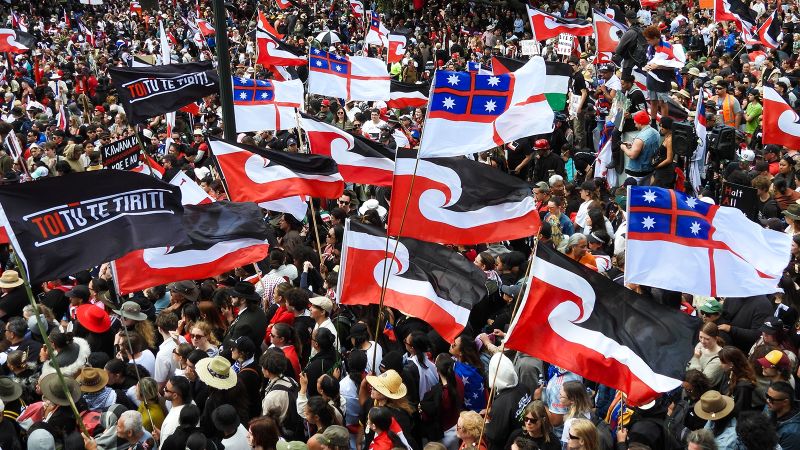New Zealand Parliament Rejects Controversial Treaty Principles Bill
Parliament votes 112 to 11 against a bill attempting to redefine Māori rights under the Treaty of Waitangi, following widespread public opposition.
Subscribe to unlock this story
We really don't like cutting you off, but you've reached your monthly limit. At just $5/month, subscriptions are how we keep this project going. Start your free 7-day trial today!
Get StartedHave an account? Sign in
Overview
New Zealand's Parliament overwhelming defeated the Treaty Principles Bill, which sought to redefine Indigenous rights per the Treaty of Waitangi. The legislation sparked intense debate and protests, receiving 300,000 public submissions, with 90% opposed. Proponents claimed it would create equality for all New Zealanders while opponents argued it would erode Māori rights. Following the vote, lawmakers celebrated with traditional Māori song, marking the end of a contentious legislative battle. Calls for continued dialogue regarding Māori rights are expected to persist, highlighting ongoing tensions around colonization and Indigenous relations.
Report issue

Read both sides in 5 minutes each day
Analysis
- The Treaty Principles Bill aimed to legally redefine principles established by the Treaty of Waitangi but was overwhelmingly rejected by the New Zealand Parliament, reflecting significant public opposition and concerns about Indigenous rights.
- Despite passing its first reading due to political negotiations, the bill received 300,000 submissions opposing it, marking one of the largest public responses to legislation in New Zealand's history and highlighting societal divisions over Māori rights.
- Opponents, including major political figures, criticized the bill for potentially eroding Māori rights and causing social discord, while supporters argue that it sought to establish equality and clarify the principles of the Treaty.
Articles (3)
Center (2)
FAQ
No FAQs available for this story.
History
- This story does not have any previous versions.

